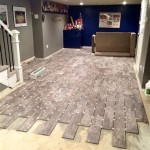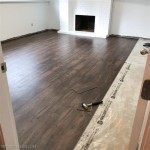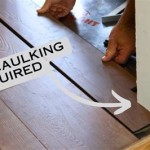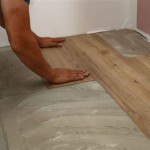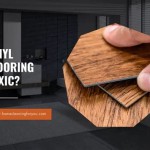Essential Aspects of Rubber Flooring: An Ideal Choice for Basements
Rubber flooring, renowned for its durability, versatility, and comfort, emerges as an exceptional choice for basement flooring. Whether you seek to create a home gym, playroom, or a cozy family retreat, rubber flooring offers a plethora of advantages that make it an ideal solution for basement applications.
Benefits of Rubber Flooring for Basements
Exceptional Durability: Rubber flooring is highly resistant to wear and tear, making it an excellent choice for high-traffic areas like basements. Its elasticity allows it to withstand heavy foot traffic, equipment, and impact without showing signs of damage.
Sound Absorption: Rubber's natural sound-dampening properties make it an ideal flooring solution for basements, effectively reducing noise and vibrations. This is particularly beneficial if your basement is located below living areas, as it minimizes noise transmission.
Water Resistance: Rubber flooring is inherently water-resistant, making it a practical choice for basements that may be prone to moisture or flooding. Unlike other flooring materials, rubber does not absorb water, preventing rot or mold growth.
Slip Resistance: The textured surface of rubber flooring provides excellent slip resistance, reducing the risk of accidents in damp or potentially slippery basement conditions. This safety feature is crucial for areas where children or elderly family members may be present.
Comfort and Insulation: Rubber flooring offers a comfortable and resilient surface to stand or walk on. Its insulating properties help to keep your basement warm and cozy, even during colder months.
Ease of Maintenance: Maintaining rubber flooring is remarkably simple. Regular sweeping and occasional mopping with a PH-neutral cleaner are sufficient to keep it looking its best. Its non-porous surface resists dirt and stains, minimizing the need for frequent deep cleaning.
Choosing the Right Rubber Flooring for Your Basement
When selecting rubber flooring for your basement, consider the following factors:
Thickness: For basement applications, a minimum thickness of 1/4 inch is recommended to ensure durability and comfort.
Type: There are two main types of rubber flooring: rolled rubber and interlocking tiles. Rolled rubber offers a seamless surface, while interlocking tiles are easier to install and replace individual sections.
Texture: The texture of rubber flooring can vary from smooth to highly textured. Choose a texture that provides the desired level of slip resistance and comfort.
Color: Rubber flooring is available in a wide range of colors, allowing you to create a custom look that complements your basement's décor.
Installation: Rubber flooring can be installed over various subfloors, including concrete, wood, and vinyl. Professional installation is recommended to ensure proper adhesion and longevity.
Conclusion
Rubber flooring presents an exceptional choice for basement applications, offering numerous advantages such as durability, sound absorption, water resistance, slip resistance, comfort, and ease of maintenance. Its versatility and aesthetic appeal make it a suitable option for creating a functional and inviting space in your basement. By carefully considering the thickness, type, texture, color, and installation method, you can select the ideal rubber flooring that meets your specific needs and preferences.

The Best Basement Flooring Options Inc

Rubber Flooring For Basements Vs Foam And Plastic Tiles Best Options

Rubber Flooring For Basements Vs Foam And Plastic Tiles Best Options

Interlocking Home Gym Rubber Floor Tiles Color 2x2 Ft X 8mm

The Best Basement Flooring Options Inc

The Best Flooring Options For Your Basement From Forest Llc

What Is The Best Flooring For A Garage Gym Foam Rubber Or Pvc

Black Rolled Rubber Flooring For Home Gym 1 4 Inch

What Are The Best Flooring For Basement In Homes

Thermaldry Basement Flooring Systems Waterproof
See Also

